When Prices Don’t Always Go Up: 190 E. Walton in the Gold Coast
In some buildings, the price declines are obvious.
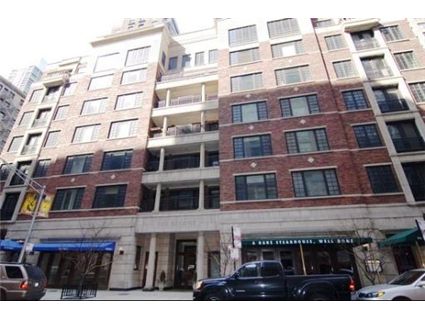
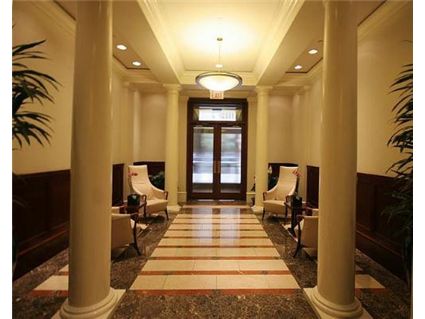
Such is the case in The Regent, at 190 E. Walton, in the Gold Coast. It has a superb location, just a few blocks east of the Mag Mile. The building, built in 1999, sports large units, in-unit laundry, balconies and a heated garage parking.
What’s there not to like?
But several two bedroom units have fallen in price over the last nine years.
Unit #302 was on the market last year. It’s a 1600 square foot two bedroom, two bath.
- Sold in April 2001 for $807,000
- Sold in October 2007 for $762,000
Maybe you’re thinking this seller just had to sell and the price is an anomaly. But then you see Unit #202.
Unit #202 has been on the market, on and off, since 2005.
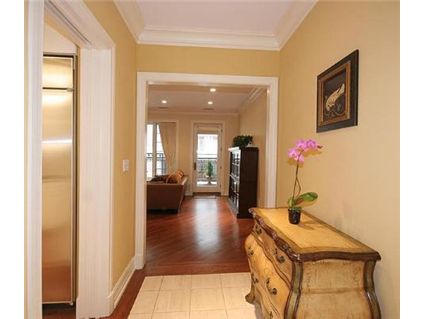
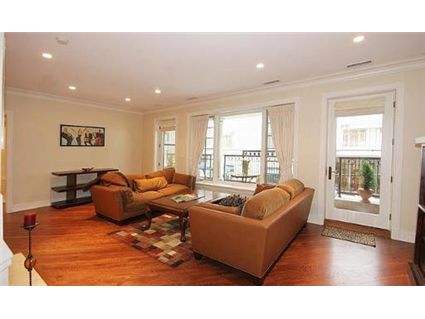
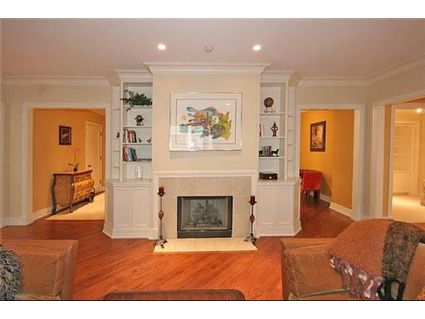
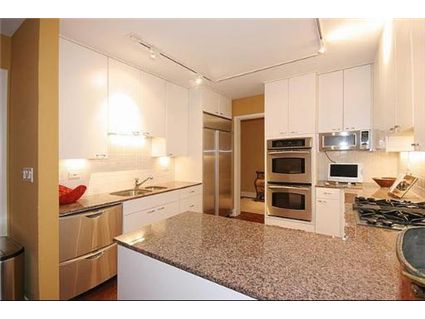
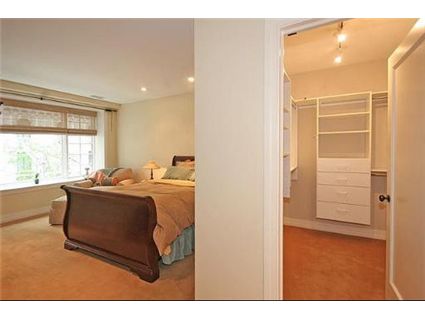
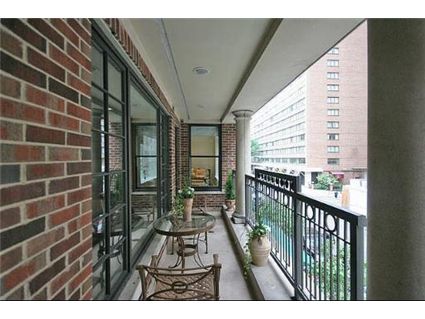
Unit #202: 2 bedrooms, 2 baths, den, 1600 square feet
- Sold in October 2000 for $705,000
- Sold in September 2003 for $710,000
- Was originally listed in 2005 for $795,000
- Reduced
- On and off the market
- Currently listed for $649,999 (parking extra)
- Assessments of $570 a month
- Keller Williams Lincoln Park has the listing
That is a great deal for a lovely home. I would take it for $649K w/parking. DONE!
I wonder if assessments have gone way up. That could drive the price down.
The assessment is $570 per month and taxes were $8,356.
I’m pleased to see prices returning to earth from the upper stratosphere. It’s amazing to think some areas were overpriced in 2001.
That appears to be a really good deal for the building, location and square footage. The assessment and real estate tax are in line too. Honestly, I’d consider looking at it, but my wife doesn’t like the idea that it’s above a restaurant.
Not areas Homedelete, some people just simply over paid.
paulj, it sounds to me like a good deal, too, until I consider how long and often it’s been on the market.
Remember, no matter how good the deal looks, if it isn’t selling, it isn’t worth what’s asked.
It’s a beautiful place and looks worth the price asked, but why isn’t it selling? If it isn’t selling, it’s too expensive, period.
Looks like there were more high-end places built in the area than the local market could absorb. The developers all tend to forget that at $600K or more, you are appealing to a very, very small subset of the population, and that everyone is trying for this slice of business.
But Laura,
If I was a developer I’d _have_ to believe that my business is _different_. Afterall my units would be unique and special and standard economic constraints would not apply to the segment as I was targetting as they would _fall in love_ with my units.
😀
Too bad nearly everyone overpaid during the bubble.
This is not a deal… but it is priced where it will probably sell.
Whoever buys at 650K will probably be taking the worst of it though.
“Not areas Homedelete, some people just simply over paid”
It seems a bit hard to believe that the rest of the market was perfectly functional but three fools wildly overpaid in this single building (with about 18 units).
It seems much more plausible that certain areas, including particularly new buildings in Gold Coast and Streeterville, were bubbly by 2001. Being new to Chicago I can’t speak with any authority, but I presume that there were not too many new buildings opening in the late 1990s (most of the loft/tower hybrids seem to be early 2000s). If so, this building (a small non-loft building build in 1999) may have appeared rather special — unique enough to support higher-than-usual prices. In that light, the $705K and $710K purchases in 2000 and 2003 don’t seem completely crazy (the $807K purchase in 2001 still seems about $100K high).
It seems that this building is now suffering because of the shiny new buildings and loft conversions in River North. This building is no longer as special as it was, which should drop prices a bit.
I doubt that increasing assessments alone explain the difference. The present value of $570/mo is about $136K, while these units are $50K lower in nominal price and perhaps another $200K in real terms (based on Case-Schiller increase from 2002 to today). That is, these units have dropped by about twice as much as the assessments could possibly explain.
The rest of the market has not been “perfectly functional” since at least 2002. This late bull housing market has been the most insane speculative rampage in the history of the world, equalled only by the farm land bubble of the 20s.
And in the 20s, you still had to put 10% down and they never heard of such a thing as a pay option ARM. And it involved a much lower percentage of the population. Yet there was still enough of a credit bubble to collapse this country financially, in spite of interventions made by the Fed between 1929 and 1933 that precisely parallel the interventions being made now.
In recent years, the whole bloody country became one great big Florida Land Bubble. Additionally, yet another wrinkle was added that was unknown in the 20s: Cash-out Refis and HELOCs. Even in the mad 20s, ordinary folks did not borrow against their house equity to buy the consumer goodies of the era.
And the 20s left behind a huge supply of the most beautiful, liveable houses and apartment buildings ever built. We still live in them and love them, but I doubt that most of the crap built in the past 10 years is going to be anything anyone loves 80 years from now.
Many of the more bearish commentators on the housing and debt scene point out that the larger credit bubble began in the 90s, when the Fed, led by Dr. Greedscam, remorselessly drove interest rates to historic lows and kept them there, flooding the country with a 14 year river of EZ credit that has led to this country now being completely bankrupt, if you measure our total private debt against our collective net worth. We have kept our economy going for the past 25 years by means of government-sponsored financial scams, of which the toxic lending of the past 7 years is the most egregious.
Every action is followed by a reaction, ’tis said, and so we might be in for a wave of deflation that totally offsets the rampant house inflation of the past 10 years. It is quite possible that this housing market will over-correct, especially if you consider the loss of jobs and deterioration in incomes. Middle and lower incomes have been stagnating for years, and an economic contraction as a result of the collapse of credit may mean far fewer affluent buyers than has been the case.
“This late bull housing market has been the most insane speculative rampage in the history of the world”
Wrong. Tulip mania.
“It seems much more plausible that certain areas, including particularly new buildings in Gold Coast and Streeterville, were bubbly by 2001.”
IMHO, Some areas of Chicago have been bubbly to some degree for 15 years.
I remeber looking to rent in Chicago in 1993-1994 when I had little savings and didn’t make a whole lot and seeing 1B/1B selling for less than $100K ($80-$90 typically) in still dicey but improving areas and thinking I wouldn’t mind buying there when I was in a position to. Living in the city for me now doesn’t make any sense but some of those same, or similiar, places are well over $300K and some are over $400K.
Reasonable appreciation, even considering the drastic improvement of the area, would put these places at $175K – $250K TOPS, not $300K – $400K.
And for those who will say I’m just a bitter renter, I did own in the burbs from 1997 – 2004. I couldn’t pass up the prices units like mine were getting. Sold a year early. Could have had another $15K, DAMN!
But I thought the Gold Coast was completely immune from the effects of the bubble! Steven Heitman said so!
In addition to the home assessment, there is an additional assessement of $295 for parking.
“But I thought the Gold Coast was completely immune from the effects of the bubble! Steven Heitman said so!”
Steven’s comments don’t contradict; he says that some people overpaid but as a whole the GC will hold its value. And the logical conclusion that follows is the people who are currently getting deals are underpaying respective to true value. ’cause the GC properties have external, inherent, extrinsic market values which often are not reflected by selling prices. The ghost in the machine, so to speak, is indefinite 5% YOY appreciation, regardless of market conditions or economic climate. Real estate always goes up!
homedelete could not have have said it any better..
Never said it always goes up Homedelete. Simply said historically it goes up 4 -5 %. I actually stated that values are flat in the ore desirable neighborhoods. As a whole this statement is true. Sure you can find people that bought higher than they will sell. I again will hsow you a lot more that have sold for more than they have bought.
When will this crash finally hit the more desirable neighborhoods? It just never seems to come!!!
That being said, the market isn’t going to completely shut down like the interest rate auction market a while back. There are still buyers with lots of cash and equity looking to buy and sell. I’d say, anecdotally of course, that the number is about the same as it has always been in a normal market. Qualified buyers percentage-wise decreased during the boom but they were still there buying and selling as usual. The problem now though is that those with a lot of equity are having a difficult time selling their current homes and their equity is slowing evaporating away. If they can’t sell, they can’t buy. I know of quite a few boomers in that position right now, trying to sell their high equity primary residence but they need the equity to buy a new property. Bridge loans don’t cut it in this market.
While everyone on here is either bemoaning or gleeful at the lack of volume, its good to keep it in historical perspective. Even with volume substantially off the boom years of 05-06, today’s reduced volume is still comparable to the volume pre (or mid) bubble of 2003.
Trulia has sales stats and it looks like volume and prices went nuts in the bubble. Now its just a return to sanity and treating housing as a place to live instead of an investment.
New homes sales are at record lows though; that’s one area that is undeniably suffering.
I’m beggining to think that “Steven Heitman” is just Sabrina keeping this place lively.
In that case, keep it up. Christopher Guest couldn’t do it better.
Homedelete – New home sales effect far out suburbs like Plainfield and Geneva. I don;t care if those areas close down all together. It is not different than moving to the middle of Iowa.
They certainly didn’t build any new residences in Chicago during this boom, right?
Every person did not overpay between 2002 and 2008. There are plenty of buildings where prices have been holding. Nice areas will always have people who want to live there. For those locations where you ask yourself why anyone would live here (South Loop, etc), those areas will suffer the most. Homes are moving at a sluggish sales pace for three key reasons: negative media news, the thought that he/she might get a better deal in the future, and the fact people have been conditioned to think a home will generate a huge return, which is no longer the case. It will take time for people to settle in and realize a home is consumption and meant for habitation (not a stock). Once commodities stablize, people will need to decide at what level he/she would like to consume. IMHO, Chicago real estate has a bright future because it is based around a large public transit infrastructure that can easily be upgraded. The rage in residential real estate is and will continue to be transit oriented development.
Stevo: “I again will hsow you a lot more that have sold for more than they have bought.”
If you’re going to show us, show us. Put up or shut up!
Caculate savings by riding public transit vs. driving a car and owing a $40,000 parking space.
http://www.apta.com/services/transit_calculator/index.cfm
JL–
There is a 4th reason nobody (reasonable) can dispute–changing requirements to obtain financing.
Forgot to include that. Good point. At least the government took the following action. This is key for Chicago since it is hard to find a 2 bedroom for under $417,000.
“On February 13, 2008 President Bush signed an economic stimulus package that temporarily increases the conforming limit to $729,750 until December 31, 2008. The limit for any area would be the greater of (1) the 2008 conforming loan limit ($417,000); or (2) 125% of the area median house price, but no more than 175% of the 2008 conforming loan limit ($729,750, which is 175% of $417,000)”
anon, funny that you brought up tulip mania. I read something recently about how Amsterdam housing prices required the current bubble in order to finally equal the prices from 300+ years ago in real terms.
JL,
As a buyer sitting on the sidelines right now I was ecstatic when the stiumulus package called for raising the conforming loan limit from $417k to $729,750.
Unfortunately, as far as I have heard the limits have yet to go up in Chicago…
https://entp.hud.gov/idapp/html/hicost1.cfm
When the economy and housing market are like they are now, there are fewer qualified buyers who want to bury themselves with $729,750 worth of debt, conforming loan or not.
Kevin,
Its funny you mentioned that. Congress passed that bill, including expanding the amount of mortgages Fannie and Freddie could carry, in order to help the housing market. However Fannie and Freddie are private companies and are still allowed to do as they please. Turns out they have only expanded their holdings of mortgages by a fraction of the increase authorized by congress, into high-quality ones. They also aren’t interested in backing loans that would be considered jumbo under the old limits.
“A temporary increase in the Conforming Loan Limits for high-cost areas of living has been incorporated into the 2008 economic stimulus package. Congress has authorized an increase of the single family residences limits to the lesser of $729,750 or 125% of the average home value within the metropolitan statistical area (MSA). However, neither Fannie Mae nor Fredie Mac are required to offer loans to those limits.”
You can lead a horse to a latrine but you can’t make him drink urine 😀
Chicagoland median MSA was around 300k at the height of the peak. So even assuming the gov takes that price, 125% of that price is 375k for Chicago conforming loans, lower than the current limit of 417k.
Chicagoland will see on relief on the conforming loan limits regardless of the actions Fannie or Freddie take (or don’t take).
I’d say the median is tempered by the miles and miles of $100k houses on the south and west side and the $500k units and houses on the north side and north and northwest suburbs. There’s some stuff in between here and there. There’s a lot of townhouses and condos in the ‘burbs for $300k but houses are not quite as easy to find. Chicago isn’t anything like LA or Orange County where shacks, literaly 900 sq ft shacks sell for half a mil. Google “real homes of genius” for some great examples.
Bob — as Tanta wrote on CalculatedRisk:
“Apparently, Fannie and Freddie have power make benefit glorious Nation of Jumbo, and they’re blowing it all on people with downpayments in non-bubble markets instead of single-handedly throwing themselves on the grenade to Save the Housing Economy.”
http://calculatedrisk.blogspot.com/2008/06/gses-refuse-to-save-day.html
Who wants the gubmint to actually spend $300B on their “$300B” bailout?
“I’m beginning to think that “Steven Heitman” is just Sabrina keeping this place lively.
In that case, keep it up. Christopher Guest couldn’t do it better.”
G: I’m not clever enough to even think up Steven Heitman, let alone what he posts. But thanks for thinking I might be.
Stepping back from all the details of finance… I think this place looks really nice except for the white cabinets in the kitchen. Looks like they put in nice appliances (not just the cheapest SS stuff they could find that you see everywhere) and I really like that there is a double oven, that can be hard to find, even in this price range.
But the white color in the kitchen, just yuck!
I remember a couple of years ago I was being shown a place down the street and we bumped into 2 brokers already showing the place so we decided to take a quick look, and although it wasn’t for us it was a very nice place, in an exceptional location, simply lacking a view. I was always surprised this one seemed “stuck” for so long. Oh and I can actually remember the smell of the Steakhouse. Oh do I ever miss food in Chicago. A real brunch would be so good right now.
Kevin.. I love a white kitchen! Actually everything in white throughout a house works for me too!
I am just jonesing for an artichoke heart frittata at Nookies right now. This sucks!!
The beginning of 2000 pricing in the Gold Coast means the beginning of pre 2000 pricing elsewhere. We’re about half through this.
I don’t think this is the “beginning of 2000 pricing in the Gold Coast.” This unit, and building, seems to be unusual for a reason no one yet has identified. Heitman mentioned this unit has fallen in and out of contract 4 times in the last 2 years, and the 2003 price was effectively the same as the 2000 price. There’s something unusual here, and can’t reasonably be considered diagnostic of the neighborhood.